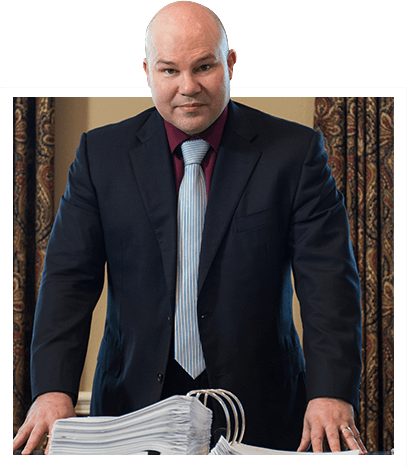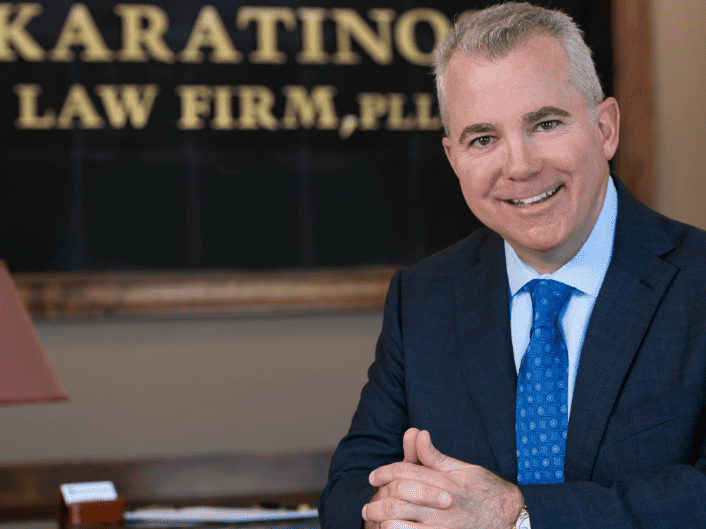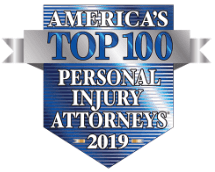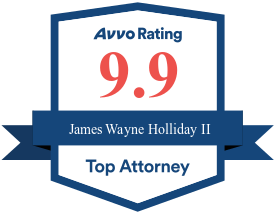Florida leads the nation in boating accidents with two crashes on average every single day—many ending in life-altering injuries, or worse. The reality is, a day on the water in Florida is supposed to be fun, not a fight for survival. But when reckless boaters, faulty equipment, or plain old negligence ruin everything, someone has to pay for the damage. And no, it shouldn’t be you.
If a boating accident injured you or someone you care about, there’s a path forward. Florida law gives you the right to pursue compensation for medical bills, lost income, pain, and plenty more. The sooner you act, the stronger your case.
Call Holliday Karatinos Law Firm today at (352) 597-0009. Let’s talk about how we can help you get the justice you deserve.
Florida Boating Accidents Guide
How Much Is a Florida Boating Accident Case Worth?
People don’t get on boats thinking about lawsuits. They go out for the breeze, the sun, and maybe a beer or two. But when someone else’s poor decisions leave you with a wrecked body and mounting bills, suddenly the question isn’t whether you should get compensated—it’s how much.
Every case is different, but Florida law lays out some general categories of damages. Let’s break it down.
Economic Damages
These are the damages you can measure. Think of them as the receipts from someone else’s negligence.
- Medical expenses: ER visits, surgeries, physical therapy, prescriptions. If you’re seeing a doctor because of the accident, it counts. Future medical costs, like ongoing rehab or home modifications, also factor in.
- Lost wages: If the injury kept you from work, you’re entitled to those missing paychecks. If you can’t return to your job—or any job—you’re looking at lost future earnings. Florida courts take that seriously.
- Property damage: Boats aren’t cheap, and neither are personal belongings damaged or lost in a crash. Whether it’s the vessel, fishing gear, or electronics, you have the right to reimbursement.
In Florida, these damages fall under Florida Statutes § 768.81, which governs negligence claims and comparative fault. The number you recover depends on how much the other party was at fault.
Non-Economic Damages
These damages aren’t as simple as a bill or paycheck. But they’re just as real.
- Pain and suffering: Physical pain from injuries, surgeries, and recovery. Some days it hurts just to move.
- Emotional distress: Anxiety, depression, PTSD. It’s common after a boating accident, especially when someone else’s carelessness caused it.
- Loss of enjoyment of life: If you loved boating, fishing, swimming—any of it—and now you can’t, this matters.
- Loss of consortium: When an injury damages a marriage or close family relationship, Florida law allows compensation for that, too.
Punitive Damages
Sometimes the other party didn’t just make a mistake—they acted with gross negligence or intentional misconduct. Maybe they were drunk. Maybe they ignored every safety rule in the book. When that happens, Florida law says they deserve more than a slap on the wrist.
Florida Statutes § 768.72 makes it clear: You only get these damages if there’s clear and convincing evidence of intentional misconduct or gross negligence. And Florida caps these awards—typically three times the amount of compensatory damages or $500,000, whichever is greater. But in extreme cases, courts have discretion.
Where Do Boating Accidents Happen in Florida?
Florida has more boats on the water than any other state. With over one million registered vessels crowding its lakes, rivers, and coastal waters, the risk of a boating accident increases every time someone grabs the keys and heads out. Some areas see more trouble than others, and Brooksville, Lutz, and Inverness are no exception.
The numbers tell part of the story. In one recent year, Florida logged 735 boating accidents, according to the Florida Fish and Wildlife Conservation Commission (FWC). Sixty-five people lost their lives. Operator inattention accounted for 44% of these crashes. Speeding, alcohol, and inexperience did the rest of the damage. Boating under the influence (BUI) was a factor in many fatal incidents.
Locally, Hernando and Citrus counties—where Brooksville and Inverness are located—see their share of dangerous boating activity. The Weeki Wachee River is a magnet for both tourists and locals. On any given weekend, it’s packed with kayaks, paddleboards, and powerboats. Add operators who don’t know the rules or ignore them, and accidents become inevitable. Shallow areas, sharp turns, and blind spots make it even worse.
Over in Citrus County, the Homosassa River and Kings Bay draw heavy boat traffic, especially during scalloping season. Narrow channels and crowded waterways leave little room for error. People who speed or drink behind the wheel make life dangerous for everyone else out there.
Lutz, sitting just outside Tampa, has direct access to Tampa Bay and the Gulf of Mexico. Hillsborough County regularly ranks in Florida’s top ten for boating accidents. Commercial vessels, large recreational boats, and personal watercraft all jockey for space. The area around the Sunshine Skyway Bridge is a particular trouble spot. Fast currents, shifting weather, and heavy marine traffic create a risky environment.
Specific danger zones in these regions include:
- Bayport Pier and Linda Pedersen Park (Hernando County): Shallow water and high weekend traffic increase the chances of collisions and groundings.
- Homosassa River and Kings Bay (Citrus County): Crowded, narrow waterways leave little margin for error, especially during peak seasons.
- Tampa Bay shipping lanes (Hillsborough County): Large commercial ships share space with small recreational boats, making accidents more likely.
Florida Boating Accidents: Types, Injuries, and the Laws That Matter
Types of Boating Accidents in Florida
These are the most common ways boating trips end in disaster:
- Collisions with other vessels: Two boats moving fast on the same patch of water is a bad combination. Whether it’s a speedboat and a pontoon, or two jet skis, these crashes are usually the result of distracted or careless operators.
- Collisions with fixed objects: Not every crash involves another boat. Docks, pilings, sandbars, and submerged rocks wreck plenty of hulls and bodies every year. These crashes usually happen because someone isn’t watching where they’re going or is going too fast to stop.
- Capsizing: Small boats don’t take much to flip. A sudden shift in weight, a sharp turn, or hitting rough weather can leave everyone in the water. Capsizing is especially common when boats are overloaded, which is why Florida Statute § 327.33(3) requires operators to avoid careless loading and operation.
- Falls overboard: Whether it’s a stumble, a crash, or a capsizing, people falling overboard is one of the deadliest situations. Drowning is a constant threat, especially when passengers aren’t wearing life jackets. Florida requires life jackets for kids under six on certain vessels under § 327.50, but adults are often left to their own judgment—sometimes with tragic results.
- Groundings: Running aground can cause serious injuries, especially if passengers are thrown forward on impact. Shallow waters in places like Tampa Bay and the Weeki Wachee River make this a frequent hazard.
Common Injuries After Boating Accidents
Injuries from boating accidents aren’t always obvious at first, but they have a way of catching up fast. Some hit hard immediately.
Others unfold over weeks or months.
If you or someone you care about has been hurt on the water, speaking with a Florida personal injury lawyer can help you understand your rights and what steps to take next.
- Traumatic brain injuries (TBIs): Heads striking metal railings, decks, or other passengers can leave lasting damage. TBIs affect memory, coordination, and personality, sometimes for life.
- Spinal cord injuries: Damage to the spinal cord can leave someone paralyzed or in constant pain. This usually happens when a crash throws someone against a hard surface or overboard.
- Fractures and broken bones: Collisions and hard impacts break bones. Arms, legs, ribs—it depends where the person lands.
- Lacerations and amputations: Propeller accidents can shred limbs. These injuries are gruesome, and survivors often face multiple surgeries and permanent disability.
- Drowning and near-drowning injuries: People thrown into the water without life jackets face a real risk of drowning. Survivors of near-drowning can suffer brain damage from lack of oxygen.
- Soft tissue injuries: Sprains, strains, and whiplash might not seem severe, but they can keep someone off the job and in pain for months.
The Laws That Control Boating Accident Claims in Florida
Florida’s legal system treats boating accidents seriously.
Several key laws and rules shape how these cases play out.
- Negligence: If a boat operator fails to act with reasonable care, they’re negligent. Florida’s § 327.33 lays out rules about reckless and careless operation—violating them often forms the backbone of a personal injury claim.
- Comparative negligence: Florida follows a modified comparative negligence rule. Under § 768.81, if the injured person shares some fault, their damages are reduced. If they’re more than 50% at fault, they get nothing.
- Boating under the influence (BUI): Operating a boat while impaired is illegal under § 327.35. A BUI conviction can be a game-changer in a personal injury lawsuit because it demonstrates gross negligence.
- Failure to report an accident: Any boating accident that causes injury, death, or property damage over $2,000 must be reported under § 327.30. Failure to do so isn’t just a criminal offense—it makes the defendant look guilty of trying to cover something up.
Federal Maritime Law
When a boating incident occurs on navigable waters – think the Atlantic Ocean, the Gulf of Mexico, or even major waterways connected to them – federal maritime law frequently comes into play. And it's often a completely different system with its own unique rules, courts, and procedures.
For instance:
- Injured maritime workers (seamen) might have claims under the Jones Act, which has specific standards for employer negligence.
- Fatal accidents occurring more than three nautical miles from shore could be governed by the Death on the High Seas Act (DOHSA), which has different rules for recoverable damages compared to state wrongful death statutes.
- Vessel owners might invoke the Limitation of Liability Act of 1851, an old but still relevant law allowing them (under certain circumstances) to potentially limit their total liability to the post-accident value of the vessel.
- Even recreational boating accidents on these waters can fall under general maritime law principles, impacting things like comparative fault and statutes of limitations.
We know how to handle cases involving these unique federal laws and fight effectively within that distinct legal framework to protect your rights.
Fighting the Insurance Companies After a Florida Boating Accident

Insurance companies like to play the long game. They wait for you to get tired, frustrated, and desperate enough to take whatever they offer. That’s the strategy.
After a boating accident, you’ll hear from an insurance adjuster sooner than you think. They’ll call under the pretense of “gathering information” or “checking in on how you’re doing.” What they’re really doing is digging for anything they can use to reduce or deny your claim.
Common Tactics Insurance Companies Use to Limit Payouts
They don’t just send you a lowball offer out of nowhere. It starts earlier, and it’s subtle.
- Recorded statements: They ask for your version of events “just to get things on file.” What they really want is for you to say something they can twist later. If you admit fault—even in passing—they’ll pounce on it.
- Quick settlement offers: Before you know the extent of your injuries, they’ll wave a check in front of you. It might cover the ER visit, but it won’t come close to handling long-term medical bills or lost income. Once you accept, your claim is closed.
- Blaming the victim: Florida’s modified comparative negligence law lets them reduce your payout if they convince a court you were partly at fault. They’ll claim you were speeding, drinking, or ignoring safety guidelines—even when that’s not true.
- Disputing medical treatment: They’ll argue that your injuries aren’t as bad as your doctor says. Sometimes they bring in their own “experts” to suggest you’re exaggerating. Other times they claim the injuries happened before the accident.
How Holliday Karatinos Law Firm Pushes Back
Insurance companies count on people being too stressed or inexperienced to push back. That’s where a law firm makes the difference.
Holliday Karatinos doesn’t waste time playing nice when the other side starts pulling these tricks.
- Thorough investigations: The firm collects police reports, medical records, eyewitness statements, and expert analysis to build a case that’s hard to ignore. If there’s a video, photo, or GPS data showing what really happened, they’ll find it.
- Expert witnesses: Doctors, accident reconstruction specialists, and economists back up your claims. They explain why you need surgery, why you can’t work, and why you deserve compensation for more than just medical bills.
- Hardline negotiations: They know the insurance company’s playbook. When an offer comes in low, they don’t accept it. They push back with facts and evidence. If the insurer refuses to deal in good faith, they prepare for trial.
- Protecting you from their tactics: From the moment you hire them, the firm shields you from direct contact with the insurance adjusters. No more pressure calls. No more “friendly” chats designed to trap you.
Florida law requires insurance companies to handle claims in good faith. Under Florida Statute § 624.155, insurers that act in bad faith—by delaying claims, denying valid claims, or offering unfair settlements—can be held accountable in court. Holliday Karatinos has no problem using that law when an insurer steps out of line.
Steer Your Case Toward Justice with Holliday Karatinos
Boating accidents don’t leave room for do-overs. One reckless decision on the water leads to injuries, bills, and a fight you didn’t ask for. But you don’t have to handle it alone.
Holliday Karatinos Law Firm knows how to hold reckless boaters and stingy insurance companies accountable. If a boating accident in Florida turned your life upside down, call (352) 597-0009 today. Let’s get you back in control.
Holliday Karatinos Law Firm, PLLC - Lutz Office
18920 N Dale Mabry Hwy #101
Lutz, FL 33548
Phone: (352) 597-0009













